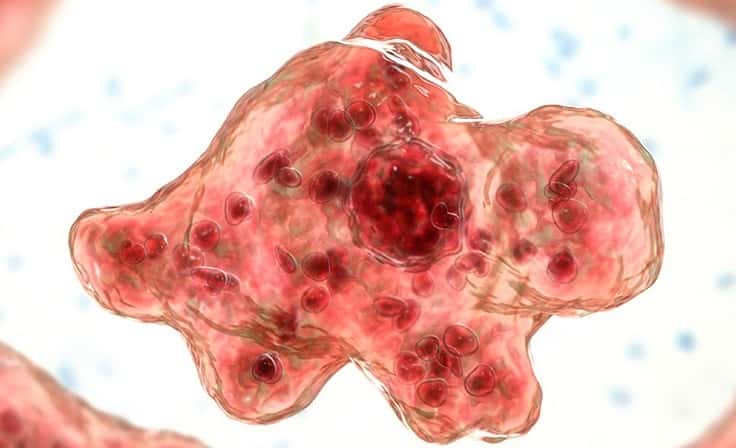According to the health authorities in South Korea, a Korean man in his 50s, who recently returned from a trip to Thailand, has apparently been killed by a brain-eating parasite.
The Korea Disease Control and Prevention Agency (KDCA) announced that it has recorded the first ever case of Naegleria fowleri, often referred to as a ‘brain-eating amoeba’, in the country, after the single-celled organism caused the death of a South Korean traveler who returned home after spending four months in Thailand.
Naegleria fowleri, colloquially known as a “brain-eating amoeba”, is a species of the genus Naegleria, belonging to the phylum Percolozoa, which is technically not classified as true amoeba, but a shapeshifting amoeboflagellate excavate.
According to KDCA, the man was hospitalized in serious condition the next day after returning to South Korea but could not be saved.
The tests performed by the hospital doctor confirmed that the gene discovered in the man’s system was 99.6% similar to that found in primary amebic meningoencephalitis (PAM) patients in other countries.
PAM is acute infection caused by Naegleria fowleri, an amoeba that lives in soil and fresh water worldwide and feeds on bacteria. It enters the human body by inhalation through the nose and then makes its way into the brain.
The symptoms of the infection include headache, fever, nausea or vomiting, stiff neck, seizures, and altered mental state, and as PAM progresses, it often leads to coma and death.
The fatality rate from the disease is extremely high and there is no specific cure for it. It is also hard to diagnose, as it is a rare condition.
The bacteria cannot be transmitted from human to human, but the South Korean authorities still advised the public to refrain from swimming in areas where the disease has been reported.
The World Health Organization (WHO) estimates that there are around 1,000 to 2,000 cases of Naegleria fowleri globally every year.
In the United States of America, there were 154 confirmed infections with the brain-eating amoeba between 1962 and 2021.
Only four patients survived, putting PAM’s death rate at 97%, according to US Centers for Disease Control and Prevention (CDC) data.























